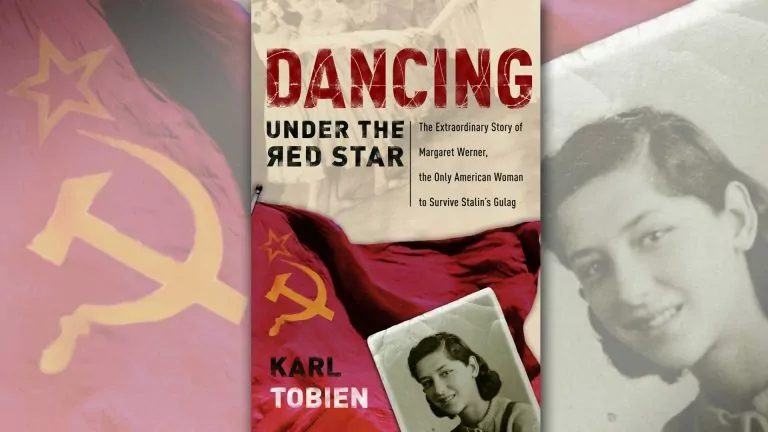by Karl Tobien
368 pages / 2006
This is American Margaret Werner’s perspective on the USSR’s forced labor camps – the Gulag – that she was sentenced to for a ten-year term. While the subject matter is heavy, this is not a difficult read; it is encouraging to see how Margaret and her mother both trusted that God would see them through.
Contents
So how did an American woman end up in a Soviet prison camp?
Margaret Werner’s father Carl worked as a supervisor at the Ford Motor Company in Detroit. In the beginning of the 1930s, Ford built a modern manufacturing plant in Gorky in the Soviet Union and recruited 450 specialized employees to move to Gorky to operate it. Carl was one of them, an idealistic person who believed that he could make a difference in the Soviet Union by helping to build affordable cars. Carl, along with his reluctant wife Elizabeth, and their 11-year-old daughter Margaret left the United States in 1932.
The family was shocked at the poverty they saw on their arrival in Moscow, but their first years in Gorky were bearable, and the family settled into the American Village there quite well.
But in 1938 Carl Werner was arrested for a trumped up treason charges and sent to one of the labor camps. His wife and daughter never learned where. Elisabeth and Margaret struggled greatly through the war years and survive only to have Margaret arrested in 1945, also for treason and espionage. She was sentenced to ten years of hard labor and sent to the brutal lumber camp, Burepolom.
In spite of the inhumane conditions, she still had hope. Her mother, left behind in Gorky, was a praying woman who believed that despite their wretched life, God had a plan for them. As the years went by in the labor camps, Margaret also started to see God’s hand in her life. A number of times she was saved from certain death in a mysterious way. Her English skills landed her a job in the office, which allowed her to escape the brutality of the labor brigades. She later said, “These new arrangements were like heaven to me, and silently I thanked God for his grace and the secret divine opening of little doors.”
Margaret was often moved from camp to camp, eventually be shuffled off to a camp called Inta, in the extreme north of the Soviet Union. She writes about the cold:
…the temperature had dropped at least forty degrees, from the teeth-chattering-but-somehow-bearable cold to now, the unbearable, loss-of-all-sensation cold, covering ourselves with everything we owned or could find, trying to become as small as possible, then huddling together as tightly as we could. But our train kept moving, going still further north, into more cold.
At Inta, Margaret’s job was to sew clothing for the men who work in the mines nearby. Many artists were also in this camp, as well as a few ballerinas, some musicians, a seamstress and others. Many of this group had been famous, and even traveled the world. They formed the Cultural Brigade and put on ballets that were enjoyed by the Camp directors and the inmates – this is what the “dancing” in the title refers to.
One of the saddest parts of the story, and one that might make this too much for young readers is what happened when one of the young dancers in the Cultural Brigade became pregnant. The girl chose to abort her baby by drinking a potion concocted by one of the other girls. Margaret and a few other girls were very upset and tried to convince the girl not to do it. But she went ahead anyways, giving birth to a live child of 5 months, which was quickly smothered by the other girl who helped her.
This is recounted in a short, somewhat clinical manner but the results were such that the young mother became lifeless as if a part of her had died along with her baby. Margret explains that, “Even at that time, before I had a developed consciousness of the divine sanctity of that baby’s life… I had a strong sense that it wasn’t what God wanted.”
When her ten years were up, Margaret was released. She married Gunther Tobien, also a political prisoner and also recently released. Margaret was already 35 years old when their son, Karl, was born. Unfortunately Margaret and Gunter’s marriage was never strong and after they received permission to leave Russia for Gunter’s home in Germany, and later escaped the Iron Curtain before the Wall was built, Gunter left his wife and child. In 1961, nearly thirty years after they left, Margaret and her mother Elizabeth, along with Margaret’s son Karl, arrived back in the United States.
Conclusion
Even though this book is about political insanity, inhumanity in the labor camps, her struggle to survive in civilian life, Margaret and Elizabeth never lose hope and continue to trust that God. Reading this book a reader will become aware that God can work in different ways. Margaret did not have a Bible in the prison camp, but God makes himself known to her.
This book is not difficult to read. The reader agrees with one of Margaret’s observations:
[The Russian people] could not turn to religion for hope; atheism was the Soviet religion. Hopelessness was deeply and permanently etched into their faces.…A country without God is a terrible place. A horribly cold, harsh spirit hovered over the country, like a cloud that would not lift. It thickened the air and filled your nostrils everywhere you went. You could feel it crawl into your skin, into your pores.…
One becomes thankful that we live in a country where we are allowed to worship in peace and freedom. We must be thankful that we have a judiciary that will hear our side of the story and treat us fairly. We need to pray for our country because this freedom that we take for granted can very quickly be taken away.















